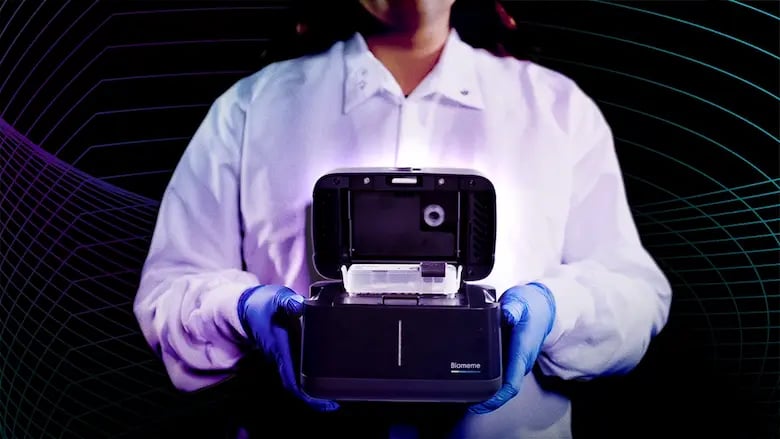Antibiotic resistance creates serious global health issues, potentially causing a post-antibiotic era. This impacts human and animal health, causing longer, more aggressive illnesses, and detrimental effects on the environment.

Antibiotic resistance (ABR) occurs when bacteria, or microbials, that used to be mitigated by antibiotics are now able to withstand the effects of antibiotics. Microbes of the bacteria are not only able to live when treated with antibiotics, but can multiply, causing more stress to the host. When antibiotics are used to treat infections, the host can build up a tolerance if undertreated or mistreated.
Antibiotic resistance poses a serious global health threat as it can lead to the failure of antibiotic treatment, prolonged illnesses, increased healthcare costs, and higher mortality rates. It limits the options for effective treatment of infections and makes it more challenging to control the spread of diseases. Addressing ABR requires a comprehensive approach, including appropriate antibiotic use, improved infection prevention and control measures, the development of new antibiotics, and global collaboration to tackle this issue.
Since their invention, germs have been evolving to build a tolerance against the antimicrobial drugs. When the same antimicrobial is overused in humans or animals, the parasite, disease, or virus isn’t as strongly affected or killed off due to this built up tolerance. Over time, this results in antimicrobial resistance as germs are not effectively killed when combated with antimicrobials.

Antibiotic misuse and overuse are significant contributing factors to the development of antibiotic resistance. When antibiotics are used inappropriately, such as not completing the full course of treatment or using them for viral infections, it provides an opportunity for bacteria to survive and develop resistance. Antibiotic resistance happens in both humans and animals due to the following factors:
These are just some of the contributing factors to ABR. As new diseases form, economies shift, and the environment changes, there are additional issues that will take a global effort to mitigate.
Intrinsic Resistance
The natural ability for an organism to withstand ABR based on their cellular components
Acquired Resistance
The development of resistance to antibiotics over time due to changes or mutations of a bacteria
Genetic Change
Refers to bacteria acquiring of new genetic material due to mutation or gene transfer between different bacteria through molecules and DNA
DNA Transfer
Transformation (naked DNA incorporation)
Transduction (the process of phagocytosis)
Conjugation (direct contact)

With the ability of bacteria to mutate and resist antibiotics, there are even bigger issues at hand. One Health, the concept of the interconnectedness of all humans, animals, and the environment, is greatly impacted by antibiotic resistance.
Each pillar of One Health is affected by antibiotic resistance:
With the contamination of our waterways, agriculture, and the overall negative impact on our environment, antibiotic resistance affects us all at an ecological level, which in turn affects us on an environmental level, which inherently impacts our economies.
One Health efforts must be implemented on a global scale, which poses its own wicked problems. Aligning One Health efforts worldwide is very difficult due to differing economies, cultural ideals, and opposing governmental agendas. However, if antibiotic resistance isn’t mitigated, then we will enter a post-antibiotic era, which will be catastrophic to the environment which will, in turn, cause economic ruin.

Biomeme combats antibiotic resistance in many ways, from Host Response research, testing, and technologies, to our One Health efforts and education of the impact of ABR.
Biomeme advocates for the responsible use of antimicrobials and antibiotics as the first fundamental step that healthcare providers must take when prescribing medications to patients. Of course, this is easier said than done, especially for smaller economies with fewer resources. With our microcellular tests and technologies, we offer rapid results and insights into an infection, determining how to treat it faster, which helps reduce the inappropriate use of antibiotics.
Additionally, the mobility of our diagnostics gives communities the resources they need, even in impoverished or rural areas. This allows practitioners to treat illnesses on a more global scale, which supports One Health efforts and overall global health.
Biomeme is at the forefront of combating antibiotic resistance through multifaceted approaches encompassing Host Response research, testing, technological innovations, and robust One Health advocacy and education initiatives. As proponents of responsible antimicrobial usage, we emphasize the pivotal role of healthcare providers in prescribing medications judiciously, particularly in resource-constrained settings. Leveraging our microcellular tests and technologies, we expedite infection diagnosis, thereby curbing inappropriate antibiotic utilization. Our mobile diagnostics extend access to underserved communities, enabling practitioners to address illnesses on a global scale, reinforcing One Health objectives and advancing overall global health outcomes.
The escalating threat of antibiotic-resistant bacteria underscores the critical importance of One Health principles, which recognize the interconnectedness of human, animal, and environmental health. Antibiotic resistance permeates each pillar of One Health, manifesting in harder-to-treat infections, elevated mortality rates, and adverse economic impacts in human health; jeopardizing animal welfare and facilitating zoonotic transmission in animal health; and perpetuating environmental contamination, thereby posing risks to both human and animal populations.
The pervasive ecological ramifications of antibiotic resistance necessitate concerted global One Health efforts, albeit challenged by economic disparities, cultural diversity, and conflicting governmental agendas. Failure to address antibiotic resistance imperils the onset of a post-antibiotic era, portending catastrophic environmental degradation and economic collapse.

With the results of the AMR Challenge quickly approaching, we wanted to take a moment to reflect on our amazing team’s...
401 North Broad St Suite 222 Philadelphia, PA 19108